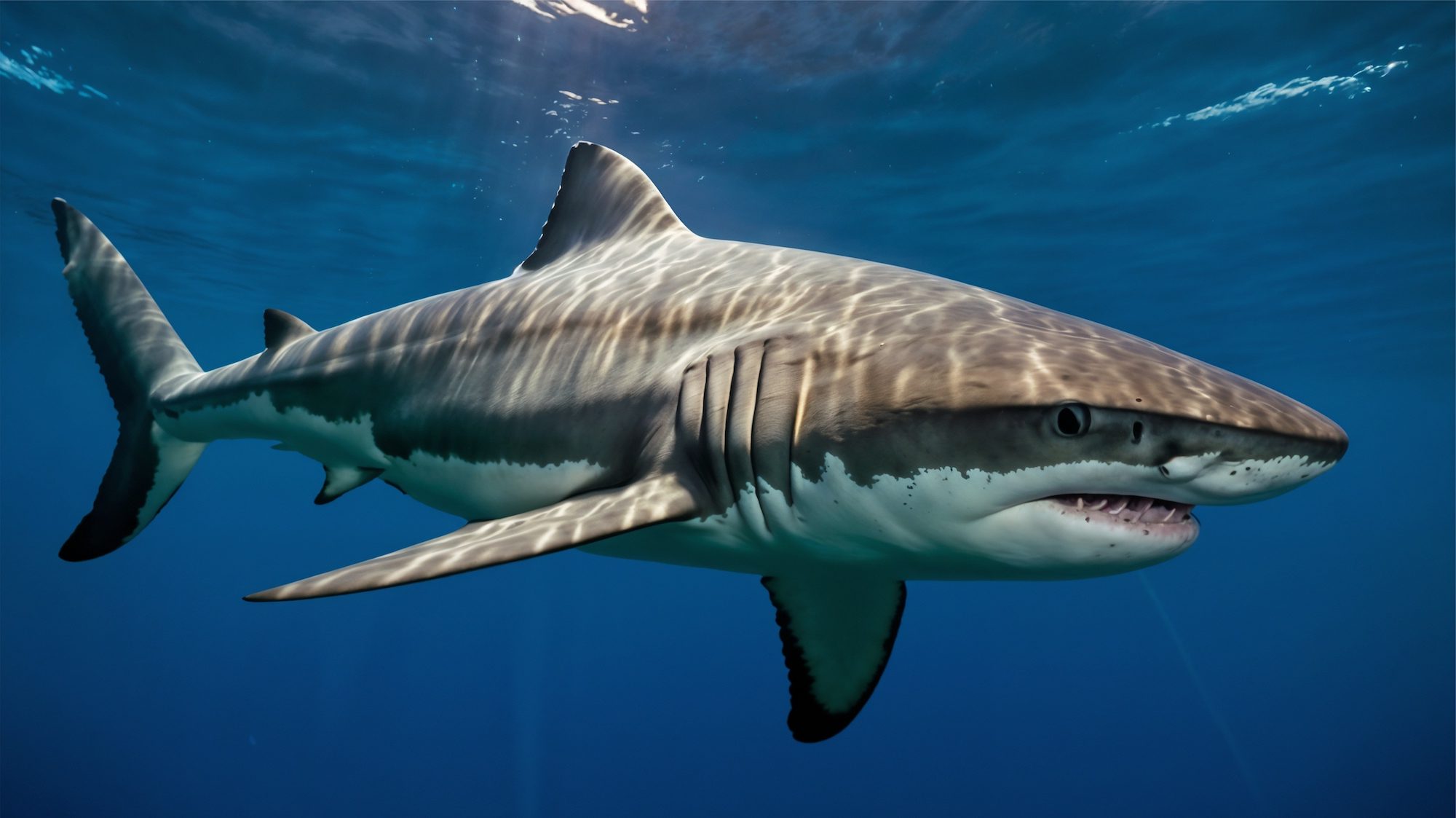Global nonprofit shark research organization OCEARCH has embarked on a multi-year project to study and protect the critically endangered Mediterranean white shark population.
OCEARCH traveled over 4,000 miles across the Atlantic to explore European waters, collaborating with regional scientists to study sharks in the waters surrounding Spain, France, and Ireland. The expedition, dubbed “Expedition Save the Med,” is actually focused on the eastern North Atlantic, where Great White shark sightings are rare but have been confirmed in the Bay of Biscay and around the United Kingdom.
White sharks, critically endangered in the Mediterranean Sea, desperately need conservation measures to address overfishing, pollution, and habitat destruction. The sharks are believed venture into the eastern North Atlantic to hunt seals and tuna. OCEARCH’s expedition initially focuses on locating white sharks in these feeding grounds off the coasts of Spain, France, and Ireland, where even a single confirmed shark sighting could begin to unlock the secrets of the Mediterranean white shark population and aid in protecting the species.
“Sharks are keystone species in marine ecosystems. As top predators in the food web, they regulate prey populations and through that shape the diversity, abundance, and distribution of other species,” Dr. Harley Newton, OCEARCH Chief Scientist & Veterinarian.
Despite OCEARCH’s extensive experience, including 48 ocean research expeditions and studies of 442 marine animals over 17 years, finding even one white shark proved challenging.
Chris Fischer, OCEARCH Founder and Expedition Leader, stated, “Many have said this is an impossible task, but OCEARCH invested everything we had into this project. If not us, then who?”
During the six-week expedition across three countries, the team studied and released five blue sharks and collected daily water samples for environmental DNA (eDNA) analysis. Although no white sharks were directly observed, Dr. Newton noted, “In science, zero is still very valuable data. So not seeing any white sharks is still critical knowledge that will help shape future work in the region.”
The expedition highlighted the urgent need for conservation measures in the Mediterranean Sea, where white sharks are critically endangered due to overfishing, pollution, and habitat destruction. Fischer emphasized the importance of regulations and enforcement in Marine Protected Areas (MPAs) to protect not only Mediterranean white sharks but other marine species in the region.

 Join The Club
Join The Club











